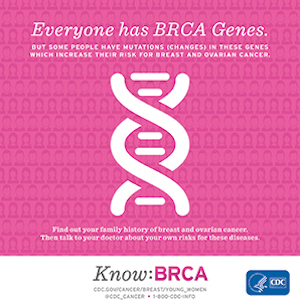-
Forward Look
No Link Found Between IVF and Breast Cancer RiskStudy findings will reassure many families.
by Cameron Walker
-
Screening Gets Personal
Conflicting and changing cancer screening guidelines have led to uncertainty and controversy. Can screening recommendations tailored for groups or individuals enhance benefits and reduce harms?
by Kate Yandell
-
Making a Match
Oncologists and researchers are looking for new drug combinations that extend patient survival without worsening side effects, but it's a daunting task.
by Stephen Ornes
-
Healthy Habits
Reaping Grains’ BenefitsStudies point to a reduced risk of cancer death from eating whole grains, but questions remain.
by Brenda Conaway
-
Healthy Habits
Put a Cork in ItDrinking alcohol increases the risk for at least seven types of cancer.
by Brenda Conaway
-
Forward Look
Do You Know BRCA?Learn more about educational efforts to increase understanding of the 'breast cancer' gene.
by Sue Rochman
-
A Rural Challenge
Nearly 20 percent of Americans live in rural areas, but only 3 percent of oncologists practice in them. Health care providers are establishing rural outposts and using advanced technology to diagnose and treat patients living in the country.
by Charlotte Huff
-
Cancer Comes Out
Members of LGBT community are at greater risk for some types of cancer. And those with cancer face challenges in getting the care and support they need.
by Cameron Walker
-
Healthy Habits
Fruitful ChoicesEating fruits in teen years associated with lower breast cancer risk later.
by Lindsey Konkel
-
Healthy Habits
Prioritize PreventionHealthier lifestyles could cut cancer deaths in half.
by Kendall K. Morgan
Cancer Talk
Navigating Out of Financial Toxicity
People with cancer face an increased risk of financial hardship. Education and expert guidance can offer patients a lifeline.
by Thomas Celona
Taking Answers HomeAdvocates bring the patient perspective to the AACR Annual Meeting 2024 and leave with tools to better communicate advances in care to others.
by Eric Fitzsimmons
Lifestyle Choices and CancerWhat people eat and drink and their level of physical activity can affect their risk of having cancer. New interventions aim to reduce risk factors.
by Kevin McLaughlin
Improving Colorectal Cancer Screening OptionsTests currently in development seek to offer greater accuracy and reach more people.
by Eric Fitzsimmons















